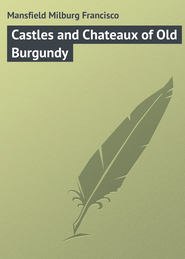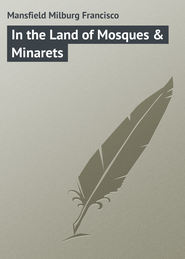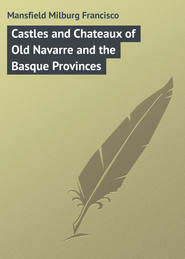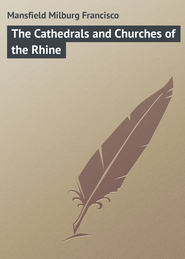По всем вопросам обращайтесь на: info@litportal.ru
(©) 2003-2024.
✖
Dumas' Paris
Настройки чтения
Размер шрифта
Высота строк
Поля
Here is, perhaps, an opportune moment to digress into the ethics of the profession of the “literary ghost,” and but for the fact that the subject has been pretty well thrashed out before, – not only with respect to Dumas, but to others as well, – it might justifiably be included here at some length, but shall not be, however.
The busy years from 1840-50 could indeed be “explained” – if one were sure of his facts; but beyond the circumstances, frequently availed of, it is admitted, of Dumas having made use of secretarial assistance in the productions which were ultimately to be fathered by himself, there is little but jealous and spiteful hearsay to lead one to suppose that he made any secret of the fact that he had some very considerable assistance in the production of the seven hundred volumes which, at a late period in his life, he claimed to have produced.
The “Maquet affaire,” of course, proclaims the whilom Augustus Mackeat as a collaborateur; still the ingenuity of Dumas shines forth through the warp and woof in an unmistakable manner, and he who would know more of the pros and cons is referred to the “Maison Dumas et Cie.”
Maquet was manifestly what we have come to know as a “hack,” though the species is not so very new – nor so very rare. The great libraries are full of them the whole world over, and very useful, though irresponsible and ungrateful persons, many of them have proved to be. Maquet, at any rate, served some sort of a useful purpose, and he certainly was a confidant of the great romancer during these very years, but that his was the mind and hand that evolved or worked out the general plan and detail of the romances is well-nigh impossible to believe, when one has digested both sides of the question.
An English critic of no inconsiderable knowledge has thrown in his lot recently with the claims of Maquet, and given the sole and entire production of “Les Trois Mousquetaires,” “Monte Cristo,” “La Dame de Monsoreau,” and many other of Dumas’ works of this period, to him, placing him, indeed, with Shakespeare, whose plays certain gullible persons believe to have been written by Bacon. The flaw in the theory is apparent when one realizes that the said Maquet was no myth – he was, in fact, a very real person, and a literary personage of a certain ability. It is strange, then, that if he were the producer of, say “Les Trois Mousquetaires,” which was issued ostensibly as the work of Dumas, that he wrote nothing under his own name that was at all comparable therewith; and stranger still, that he was able to repeat this alleged success with “Monte Cristo,” or the rest of the Mousquetaire series, and yet not be able to do the same sort of a feat when playing the game by himself. One instance would not prove this contention, but several are likely to not only give it additional strength, but to practically demonstrate the correct conclusion.
The ethics of plagiarism are still greater and more involved than those which make justification for the employment of one who makes a profession of library research, but it is too involved and too vast to enter into here, with respect to accusations of its nature which were also made against Dumas.
As that new star which has so recently risen out of the East – Mr. Kipling – has said, “They took things where they found them.” This is perhaps truthful with regard to most literary folk, who are continually seeking a new line of thought. Scott did it, rather generously one might think; even Stevenson admitted that he was greatly indebted to Washington Irving and Poe for certain of the details of “Treasure Island” – though there is absolutely no question but that it was a sort of unconscious absorption, to put it rather unscientifically. The scientist himself calls it the workings of the subconscious self.
As before said, the Maquet affaire was a most complicated one, and it shall have no lengthy consideration here. Suffice to say that, when a case was made by Maquet in court, in 1856-58, Maquet lost. “It is not justice that has won,” said Maquet, “but Dumas.”
Edmond About has said that Maquet lived to speak kindly of Dumas, “as did his legion of other collaborateurs; and the proudest of them congratulate themselves on having been trained in so good a school.” This being so, it is hard to see anything very outrageous or preposterous in the procedure.
Blaze de Bury has described Dumas’ method thus:
“The plot was worked over by Dumas and his colleague, when it was finally drafted by the other and afterward rewritten by Dumas.”
M. About, too, corroborates Blaze de Bury’s statement, so it thus appears legitimately explained. Dumas at least supplied the ideas and the esprit.
In Dumas’ later years there is perhaps more justification for the thought that as his indolence increased – though he was never actually inert, at least not until sickness drew him down – the authorship of the novels became more complex. Blaze de Bury put them down to the “Dumas-Legion,” and perhaps with some truth. They certainly have not the vim and fire and temperament of individuality of those put forth from 1840 to 1850.
Dumas wrote fire and impetuosity into the veins of his heroes, perhaps some of his very own vivacious spirit. It has been said that his moral code was that of the camp or the theatre; but that is an ambiguity, and it were better not dissected.
Certainly he was no prude or Puritan, not more so, at any rate, than were Burns, Byron, or Poe, but the virtues of courage, devotion, faithfulness, loyalty, and friendship were his, to a degree hardly excelled by any of whom the written record of cameraderie exists.
Dumas has been jibed and jeered at by the supercilious critics ever since his first successes appeared, but it has not leavened his reputation as the first romancer of his time one single jot; and within the past few years we have had a revival of the character of true romance – perhaps the first true revival since Dumas’ time – in M. Rostand’s “Cyrano de Bergerac.”
We have had, too, the works of Zola, who, indomitable, industrious, and sincere as he undoubtedly was, will have been long forgotten when the masterpieces of Dumas are being read and reread. The Mousquetaire cycle, the Valois romances, and “Monte Cristo” stand out by themselves above all others of his works, and have had the approbation of such discerning fellow craftsmen as George Sand, Thackeray, and Stevenson, all of whom may be presumed to have judged from entirely different points of view. Thackeray, indeed, plainly indicated his greatest admiration for “La Tulipe Noire,” a work which in point of time came somewhat later. At this time Dumas had built his own Chalet de Monte Cristo near St. Germain, a sort of a Gallic rival to Abbotsford. It, and the “Théâtre Historique,” founded by Dumas, came to their disastrous end in the years immediately following upon the Revolution of 1848, when Dumas fled to Brussels and began his “Mémoires.” He also founded a newspaper called Le Mousquetaire, which failed, else he might have retrenched and satisfied his creditors – at least in part.
He travelled in Russia, and upon his return wrote of his journey to the Caspian. In 1860 he obtained an archæological berth in Italy, and edited a Garibaldian newspaper.
By 1864, the “Director of Excavations at Naples,” which was Dumas’ official title, fell out with the new government which had come in, and he left his partisan journal and the lava-beds of Pompeii for Paris and the literary arena again; but the virile power of his early years was gone, and Dumas never again wielded the same pen which had limned the features of Athos, Porthos, Aramis, and D’Artagnan.
In 1844 Dumas participated in a sort of personally-conducted Bonapartist tour to the Mediterranean, in company with the son of Jerome Napoleon. On this journey Dumas first saw the island of Monte Cristo and the Château d’If, which lived so fervently in his memory that he decided that their personality should be incorporated in the famous tale which was already formulating itself in his brain.
Again, this time in company with the Duc de Montpensier, he journeyed to the Mediterranean, “did” Spain, and crossed over to Algiers. When he returned he brought back the celebrated vulture, “Jugurtha,” whose fame was afterward perpetuated in “Mes Bêtes.”
That there was a deal of reality in the characterization and the locale of Dumas’ romances will not be denied by any who have acquaintance therewith. Dumas unquestionably took his material where he found it, and his wonderfully retentive memory, his vast capacity for work, and his wide experience and extensive acquaintance provided him material that many another would have lacked.
M. de Chaffault tells of his having accompanied Dumas by road from Sens to Joigny, Dumas being about to appeal to the republican constituency of that place for their support of him as a candidate for the parliamentary elections.
“In a short time we were on the road,” said the narrator, “and the first stage of three hours seemed to me only as many minutes. Whenever we passed a country-seat, out came a lot of anecdotes and legends connected with its owners, interlarded with quaint fancies and epigrams.”
Aside from the descriptions of the country around about Crépy, Compiègne, and Villers-Cotterets which he wove into the Valois tales, “The Taking of the Bastille,” and “The Wolf-Leader,” there is a strong note of personality in “Georges;” some have called it autobiography.
The tale opens in the far-distant Isle of France, called since the English occupation Mauritius, and in the narrative of the half-caste Georges Munier are supposed to be reflected many of the personal incidents of the life of the author.
This story may or may not be a mere repetition of certain of the incidents of the struggle of the mulatto against the barrier of the white aristocracy, and may have been an echo in Dumas’ own life. It is repeated it may have been this, or it may have been much more. Certain it is, there is an underlying motive which could only have been realized to the full extent expressed therein by one who knew and felt the pangs of the encounter with a world which only could come to one of genius who was by reason of race or creed outclassed by his contemporaries; and therein is given the most vivid expression of the rise of one who had everything against him at the start.
This was not wholly true of Dumas himself, to be sure, as he was endowed with certain influential friends. Still it was mainly through his own efforts that he was able to prevail upon the old associates and friends of the dashing General Dumas, his father, to give him his first lift along the rough and stony literary pathway.
In this book there is a curious interweaving of the life and colour which may have had not a little to do with the actual life which obtained with respect to his ancestors, and as such, and the various descriptions of negro and Creole life, the story becomes at once a document of prime interest and importance.
Since Dumas himself has explained and justified the circumstance out of which grew the conception of the D’Artagnan romances, it is perhaps advisable that some account should be given of the original D’Artagnan.
Primarily, the interest in Dumas’ romance of “Les Trois Mousquetaires” is as great, if not greater, with respect to the characters as it is with the scenes in which they lived and acted their strenuous parts. In addition, there is the profound satisfaction of knowing that the rollicking and gallant swashbuckler has come down to us from the pages of real life, as Dumas himself recounts in the preface to the Colman Lévy edition of the book. The statement of Dumas is explicit enough; there is no mistaking his words which open the preface:
“Dans laquelle
Il est établi que, malgré leurs noms en os et en is,
Les héros de l’histoire
Que nous allons avoir l’honneur de raconter à nos lecteurs
N’ont rien de mythologique.”
The contemporary facts which connect the real Comte d’Artagnan with romances are as follows:
Charles de Batz de Castlemore, Comte d’Artagnan, received his title from the little village of Artagnan, near the Gascon town of Orthez in the present department of the Hautes-Pyrénées. He was born in 1623. Dumas, with an author’s license, made his chief figure a dozen years older, for the real D’Artagnan was but five years old at the time of the siege of La Rochelle of which Dumas makes mention. On the whole, the romance is near enough to reality to form an ample endorsement of the author’s verity.
The real D’Artagnan made his way to Paris, as did he of the romance. Here he met his fellow Béarnais, one M. de Treville, captain of the king’s musketeers, and the illustrious individuals, Armand de Sillegue d’Athos, a Béarnais nobleman who died in 1645, and whose direct descendant, Colonel de Sillegue, commanded, according to the French army lists of a recent date, a regiment of French cavalry; Henry d’Aramitz, lay abbé of Oloron; and Jean de Portu, all of them probably neighbours in D’Artagnan’s old home.
D’Artagnan could not then have been at the siege of La Rochelle, but from the “Mémoires de M. d’Artagnan,” of which Dumas writes in his preface, we learn of his feats at arms at Arras, Valenciennes, Douai, and Lille, all places where once and again Dumas placed the action of the novels.
The real D’Artagnan died, sword in hand, “in the imminent deadly breach” at Maestricht, in 1673. He served, too, under Prince Rupert in the Civil War, and frequently visited England, where he had an affaire with a certain Milady, which is again reminiscent of the pages of Dumas.
This D’Artagnan in the flesh married Charlotte Anne de Chanlecy, and the last of his direct descendants died in Paris in the latter years of the eighteenth century, but collateral branches of the family appear still to exist in Gascony, and there was a certain Baron de Batz, a Béarnais, who made a daring attempt to save Marie Antoinette in 1793.
The inception of the whole work in Dumas’ mind, as he says, came to him while he was making research in the “Bibliothèque Royale” for his history of Louis XIV.
Thus from these beginnings grew up that series of romances which gave undying fame to Alexandre Dumas, and to the world of readers a series of characters and scenes associated with the mediæval history of France, which, before or since, have not been equalled.
Alexandre Dumas has been described as something of the soldier, the cook, and the traveller, more of the journalist, diplomatist, and poet, and, more than all else, the dramatist, romancer, and raconteur. He himself has said that he was a “veritable Wandering Jew of literature.”
His versatility in no way comprised his abilities, and, while conceit and egoism played a not unimportant share in his make-up, his affability – when he so chose – caused him to be ranked highly in the estimation of his equals and contemporaries. By the cur-dogs, which always snap at the heels of a more splendid animal, he was not ranked so high.
Certain of these were for ever twitting him publicly of his creed, race, and foibles. It is recorded by Theodore de Bauville, in his “Odes,” that one Jacquot hailed Dumas in the open street with a ribald jeer, when, calmly turning to his detractor, Dumas said, simply: “Hast thou dined to-day, Jacquot?” Then it was that this said Jacquot published the slanderous brochure, “La Maison Dumas et Cie,” which has gone down as something considerable of a sensation in the annals of literary history; so much so, indeed, that most writers who have had occasion to refer to Dumas’ literary career have apparently half-believed its accusations, which, truth to tell, may have had some bearing on “things as they were,” had they but been put forward as a bit of temperate criticism rather than as a sweeping condemnation.
To give the reader an idea of the Dumas of 1840, one can scarcely do better than present his portrait as sketched by De Villemessant, the founder and brilliant editor of the Figaro, when Dumas was at the height of his glory, and a grasp of his hand was better than a touch of genius to those receiving it:
“At no time and among no people had it till then been granted to a writer to achieve fame in every direction; in serious drama and in comedy, and novels of adventure and of domestic interest, in humourous stories and in pathetic tales, Alexandre Dumas had been alike successful. The frequenters of the Théâtre Français owed him evenings of delight, but so did the general public as well. Dumas alone had had the power to touch, interest, or amuse, not only Paris or France, but the whole world. If all other novelists had been swallowed up in an earthquake, this one would have been able to supply the leading libraries of Europe. If all other dramatists had died, Alexandre Dumas could have occupied every stage; his magic name on a playbill or affixed to a newspaper feuilleton ensured the sale of that issue or a full house at the theatre. He was king of the stage, prince of feuilletonists, the literary man par excellence, in that Paris then so full of intellect. When he opened his lips the most eloquent held their breath to listen; when he entered a room the wit of man, the beauty of woman, the pride of life, grew dim in the radiance of his glory; he reigned over Paris in right of his sovereign intellect, the only monarch who for an entire century had understood how to draw to himself the adoration of all classes of society, from the Faubourg St. Germain to the Batignolles.
“Just as he united in himself capabilities of many kinds, so he displayed in his person the perfection of many races. From the negro he had derived the frizzled hair and those thick lips on which Europe had laid a delicate smile of ever-varying meaning; from the southern races he derived his vivacity of gesture and speech, from the northern his solid frame and broad shoulders and a figure which, while it showed no lack of French elegance, was powerful enough to have made green with envy the gentlemen of the Russian Life-Guards.”











